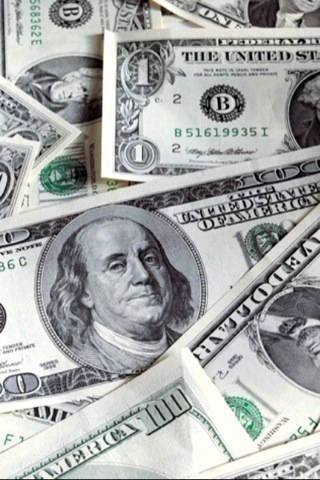 Why does the invisible hand want to slap you across the face?
Why does the invisible hand want to slap you across the face?
Because it belongs to a douchebag.
That’s the conclusion, anyway, of aprovocative blog post in Psychology Today by Wharton professor Adam Grant making the rounds across planet internet.
But before all you econ majors get your demand curves in a twist, hear what the good professor has to say.
Citing research by Cornell professor Robert Frank, Grant makes the compelling case that economists are neither generous, nor cooperative. And that’s because they’ve swallowed one of Adam Smith’s main tenets: people act out of rational self-interest.
Emphasis here on the self.
In short: economists don’t feel bad about acting in their self-interest because — well — the economic theories tell them that they should be selfish.
To help make his case, Grant points to three key data points.
First, economics professors give less money to charity than those in other academic fields, such as literature, history, philosophy, psychology, sociology, anthropology, education, physics, chemistry and biology.
“More than twice as many economics professors gave zero dollars to charity than professors from the other fields,” Grant adds.
Second, economics students are more likely to engage in deceptive behaviors when they believe they stand to gain, as this study in Germany shows.
Finally, economics majors — echoing that old Wall Street hero Gordon Gekko — are more likely to believe that greed is good.
Grant makes several other keen observations in the piece, including the possibility that, as an area of study, selfish souls who want to associate with others just like them self-select for economics.
So, there you go, proof positive that economists are horrible, horrible people.
But since there’s always another hand in economics (thank you very much, Harry S. Truman), let me suggest another set of evidence.
Adam Smith’s famous quote about rational self-interest goes like this: “It is not from the benevolence of the butcher, the brewer, or the baker, that we can expect our dinner, but from their regard to their own interest.”
And, sure, there’s plenty of truth in that insight. The economy is a complex beast with countless individuals competing fiercely for scarce resources doing what they think will better their economic standing.
As the longeivity of Smith’s idea attests, somehow this all works out for the greater good. Most of the time, anyway.
But not all the time.
And that’s not all that surprising.
Smith’s The Wealth of Nations was published in 1776. That’s 83 years before Charles Darwin’s Origin of Species, and like all brilliant and rightly famous theories, there’s been some evolution in thinking since.
What’s missing from this picture — and it’s something that Grant points to as a possible solution to the problem — is the emergence of behavioral economics, which modified more traditional economic theories by adding in so-called social preferences like altruism, fairness and even cooperation.
In short, psychology was blended with all the charts and graphs in an attempt to paint a more accurate picture of how people really act, not how they’re supposed to act.
These more complete theories are where all the action in economics is taking place these days. They also underlie some of the best work of this year’s three Nobel Prize winners in Economics.
And you wouldn’t call Robert Shiller, Eugene Fama or Lars Peter Hansen douchebags, would you?
That would be irrational.

